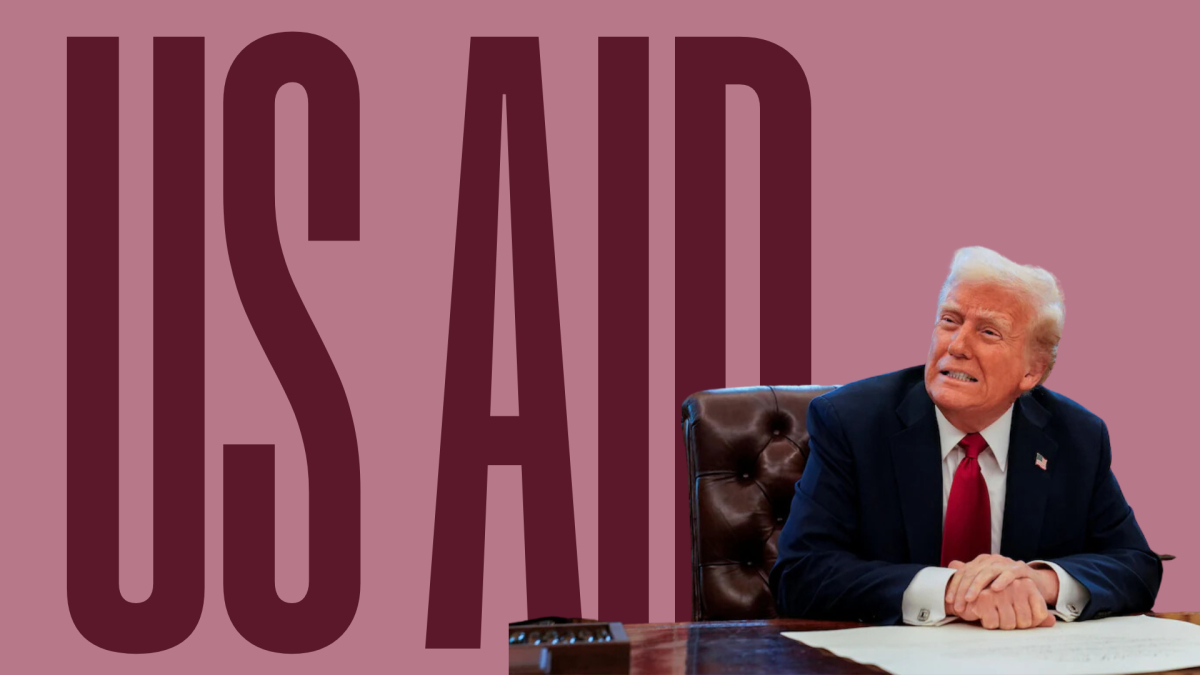The United States Agency for International Development (USAID) has been a fixture of the American government since the 1960s. Founded by President John F. Kennedy, the politically independent agency’s primary mission has been to administer foreign aid to civilians and developmental assistance to foreign countries. But this crucial component of the American government is at the risk of being dismantled by the current presidential administration. If successful, the closure of USAID would put thousands out of work, create potentially dangerous effects within the international community and fly in the face of Fordham University’s humanitarian values.
Recently, President Donald Trump attempted to put all but 290 members of the USAID staff of 10,000 on leave, a controversial move that has been partially and temporarily blocked by a federal judge. This is only one, albeit significant, move that the Trump administration has made against USAID. The administration has made it clear since Trump’s return to power that the agency has a target on its back due to its “waste, fraud, and abuse” that has gone unchecked “for decades.”
These moves demonstrate the Trump administration’s “America First” values and the negative sentiment that the administration holds towards USAID. Vaguely-titled “special government employee” Elon Musk has made a number of comments online disparaging the organization, many of them negatively referring to its perceived left-leaning agenda rather than its overall costs. He has notably referred to the agency as a “viper’s nest of radical-left Marxists who hate America” and “a radical left political psy op.” Tom Yazdgerdi, president of the American Foreign Services Organization, which represents over 1,800 USAID foreign service officers, heavily maintained the sentiment that USAID, like every other government agency, is a nonpartisan organization with nonpartisan employees.
Former USAID employees note that the agency has a relatively small budget compared to other government agencies, which may indicate that the USAID cuts are not a calculated measure to reduce waste in the government but a test run for the gutting of larger government agencies. In fact, the total expenditure of the agency in 2023 was less than 1% of the annual U.S. federal budget of $6.75 trillion. The agency’s unorthodox structure compared to other government agencies may have led Elon Musk’s Department of Government Efficiency (DOGE) to identify it as an easy target for so-called cost-cutting initiatives. Unlike most government agencies, personal service and institutional contractors far outnumber full-time government employees at USAID. These contractors are paid at comparable rates to full-time employees but lack the job protections and benefits that other federal employees have, making them much easier to cut.
Additionally, it should be noted that a significant part of the cuts made within the agency have specifically been made towards international programs meant to benefit marginalized communities: queer communities, women and people of color, to name a few. In fact, in a press release from the White House, the Trump administration refers to programs like the provision of personalized contraceptives and the advancement of diversity and inclusion in Serbia’s community and workplaces as “malicious pet projects of entrenched bureaucrats with next-to-no oversight.” Also, his attempt to put thousands of Americans out of work begs the question: how does this initiative coexist with an America First agenda if Americans are actively being harmed by it?
Trump’s attempts to close USAID inherently conflict with Fordham University’s values, particularly the institution’s emphasis on the importance of humanitarianism and service to others. Fordham has attempted to highlight the importance of global outreach through both community service programs and its Institute of International Humanitarian Affairs.
Fordham’s Global Outreach program (GO!) is an example of the university’s commitment to humanitarianism and service. The program has been around in various forms for over 60 years and is deeply rooted in the university with its dedication to community-engaged learning. Also, Fordham’s Institute of International Humanitarian Affairs mission is “to train and educate current and future aid workers at local, regional, national, and international levels.” This institution has a myriad of programs dedicated to humanitarian aid for all marginalized groups, including those that the Trump administration is attempting to cut.
Essentially, based on the values that Fordham has instilled in its student body, there is absolutely no avenue in which Trump’s attempts to close the USAID do not conflict with the institution’s core values. Community-engaged learning is a crucial part of the Fordham experience — as seen in our student organizations, classes and outreach programs. To say that the Trump administration’s attempts to close USAID conflict with the university’s values would be a gross understatement.
Thus, it is imperative to do the work to remain informed, advocate for legislation to help prevent cuts to USAID and support the international community. The Trump administration’s attempts to dismantle the agency not only threaten the livelihoods of thousands of Americans but also threaten those across the international community and jeopardize decades of progress made to foster goodwill across global borders.
Damien Moshman, FCRH ’25, is a political science and journalism major from Princeton, N.J.














































































































































































































